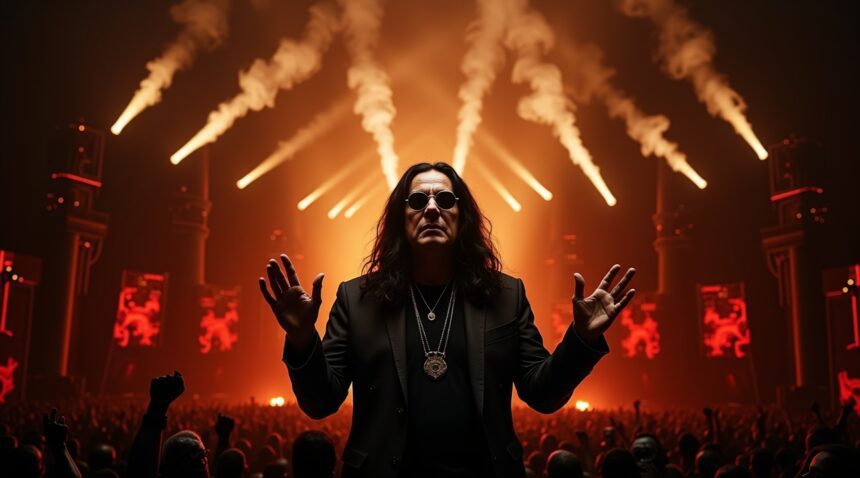Ozzy Osbourne’s incredible journey from a working-class kid in Birmingham to the globally recognized “Prince of Darkness” represents one of music history’s most extraordinary transformations, spanning six decades of groundbreaking achievements that extend far beyond his role as heavy metal’s founding father.
Key Takeaways
- Heavy Metal Pioneer: Co-founded Black Sabbath in 1968 and created the blueprint for heavy metal music with groundbreaking albums like “Paranoid” and “Master of Reality” that influenced countless future metal bands including Metallica, Judas Priest, and Iron Maiden.
- Commercial Powerhouse: Achieved over 100 million global album sales, became one of the few artists with top ten albums across six consecutive decades, and earned multi-platinum status for his first seven solo albums.
- Cultural Icon: Transformed from niche metal figure to mainstream celebrity through MTV’s The Osbournes reality show, created the influential Ozzfest festival, and authored a New York Times bestselling autobiography.
- Historic Recognition: Earned double induction into the Rock & Roll Hall of Fame (with Black Sabbath in 2006 and as a solo artist in 2024), won three Grammy Awards, and received numerous lifetime achievement honors.
- Inspiring Resilience: Overcame severe addiction issues that led to his dismissal from Black Sabbath in 1979, launched a successful solo career, and continues pursuing music despite battling Parkinson’s disease and other health challenges.
How the “Prince of Darkness” Pioneered Heavy Metal and Changed Music Forever
I can trace heavy metal’s origins back to a small factory town in Birmingham, England, where four working-class musicians changed music history forever. Born on December 3, 1948, Ozzy Osbourne grew up in this industrial landscape that would later influence the dark, heavy sound he helped create. When Black Sabbath formed in 1968, they didn’t just start a band—they birthed an entirely new genre.
The Birth of Heavy Metal Through Black Sabbath
Black Sabbath earned recognition as the true pioneers of heavy metal through their groundbreaking approach to rock music. The band’s innovative use of low-tuned guitars created a heavier, more menacing sound that had never been heard before. Osbourne’s dramatic vocal style perfectly complemented these crushing riffs, establishing the template that countless metal bands would follow.
Albums like Paranoid (1970), Master of Reality (1971), and Sabbath Bloody Sabbath (1973) didn’t just define heavy metal—they created its very foundation. Each release pushed creative boundaries further, with Paranoid becoming particularly influential. The title track “Paranoid” emerged as a signature piece that showcased the band’s ability to craft memorable hooks while maintaining their dark edge. Both Paranoid and the self-titled Black Sabbath album are routinely voted among the top 10 greatest heavy metal records of all time, cementing their status as essential listening.
Legacy and Influence on Future Metal Giants
Osbourne’s impact extends far beyond Black Sabbath’s groundbreaking recordings. His dramatic lyrics and theatrical stage presence directly inspired future metal legends including Metallica, Judas Priest, and Iron Maiden. These bands took the blueprint that Black Sabbath created and expanded upon it, but they all acknowledged their debt to the “Prince of Darkness.”
The nickname itself became synonymous with Osbourne’s dark persona and theatrical approach to performance. He transformed metal from simple heavy rock into something theatrical and dramatic. This influence continues today, with new metal bands still drawing inspiration from those early Black Sabbath albums.
Modern metal wouldn’t exist without Osbourne’s contributions. His willingness to explore darker themes in music opened doors for entire subgenres of metal. From doom metal to death metal, traces of Black Sabbath’s influence can be found throughout the metal spectrum.
Osbourne’s legacy remains strong decades after those first groundbreaking albums. Recent news about potential new projects demonstrates that fans still hunger for more from the Prince of Darkness. His ability to continually evolve while maintaining his core identity has kept him relevant across multiple generations of metal fans.
The transformation from John Michael Osbourne of Birmingham to the global icon known as the Prince of Darkness represents one of music’s most remarkable journeys. His work with Black Sabbath didn’t just create heavy metal—it established a cultural movement that continues thriving today. Every distorted guitar riff, every theatrical metal performance, and every dark lyric in modern heavy music owes something to the foundation that Osbourne and Black Sabbath built in those early years.
Heavy metal exists because four musicians from Birmingham dared to make music darker and heavier than anyone before them. Osbourne’s voice became the perfect vehicle for this new sound, and his dramatic presentation showed that metal could be both musically powerful and theatrically captivating. The Prince of Darkness didn’t just pioneer a genre—he created a lasting legacy that continues inspiring musicians and fans around the world.
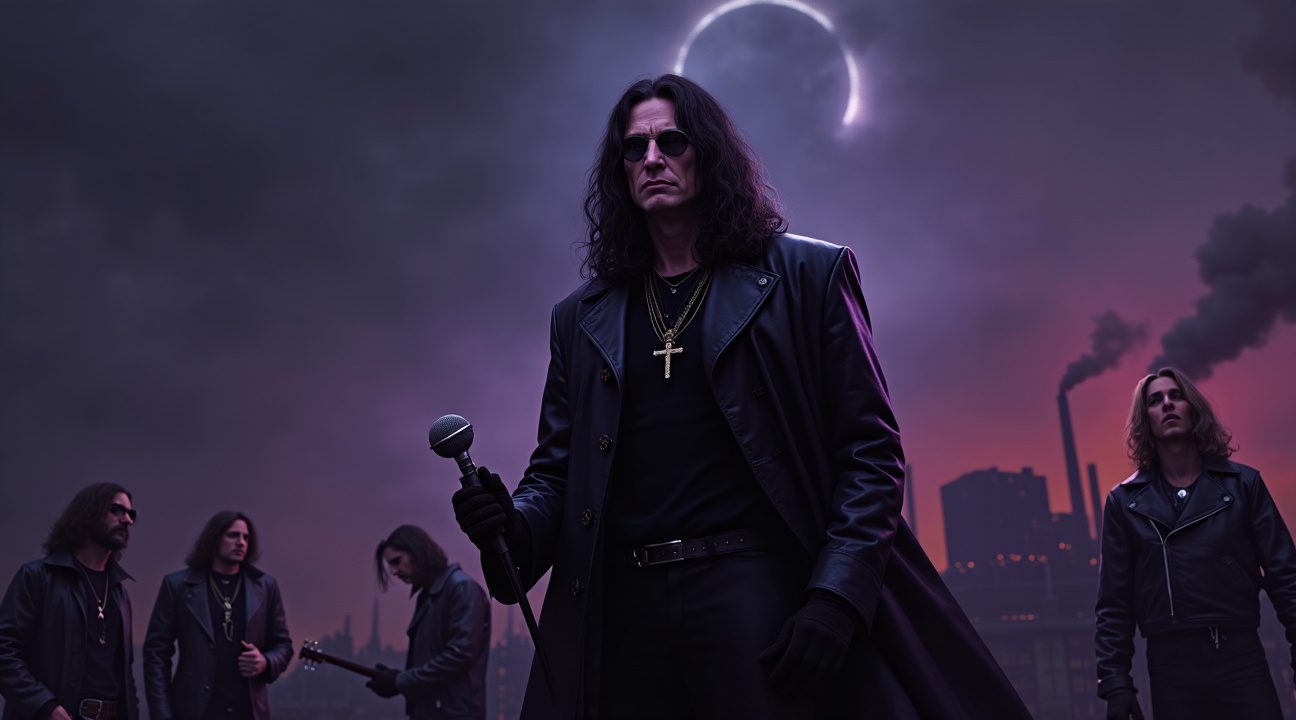
Record-Breaking Sales and Six Decades of Chart Domination
Osbourne’s commercial achievements speak volumes about his extraordinary staying power in the music industry. Global album sales from his combined Black Sabbath and solo catalogs exceed 100 million copies, placing him among the most successful recording artists in rock history. This staggering figure represents decades of consistent chart performance and enduring fan loyalty that spans multiple generations.
The Prince of Darkness stands among an elite group of artists who’ve secured top ten albums across six consecutive decades. This remarkable feat underscores his ability to remain relevant and commercially viable through changing musical landscapes and shifting industry dynamics. Few performers can claim such sustained chart dominance, making this achievement particularly noteworthy in demonstrating his lasting influence on popular music.
Solo Career Milestones That Defined Heavy Metal
His solo career launched with explosive commercial success through two cornerstone albums. “Blizzard of Ozz” (1980) and “Diary of a Madman” (1981) both achieved multi-platinum status, establishing him as a formidable force beyond Black Sabbath. These releases yielded instant classics including “Crazy Train” and “Flying High Again”, songs that remain staples of rock radio programming today.
The momentum continued throughout the 1980s as his first seven solo albums all received multi-platinum certifications in the United States. This consistent commercial performance during the decade solidified his position as a solo artist capable of matching, if not surpassing, his group achievements. Albums like “Bark at the Moon” and “Shot in the Dark” kept him firmly planted atop Billboard charts while expanding his fanbase globally.
His return to Black Sabbath yielded another significant Billboard milestone in 2013. The album “13” topped the Billboard Top 200, marking his first chart-topping effort with the legendary group in 35 years. This achievement proved that both his solo work and collaborative efforts with Black Sabbath continued to resonate with audiences decades after their initial formation.
The commercial success extends beyond mere numbers, representing cultural impact that transcends typical album sales metrics. His ability to maintain multi-platinum status across different eras demonstrates an artist who’s successfully adapted to changing industry standards while preserving his distinctive musical identity. Recent discussions about future projects suggest his commercial appeal remains strong even as he approaches the twilight of his performing career.
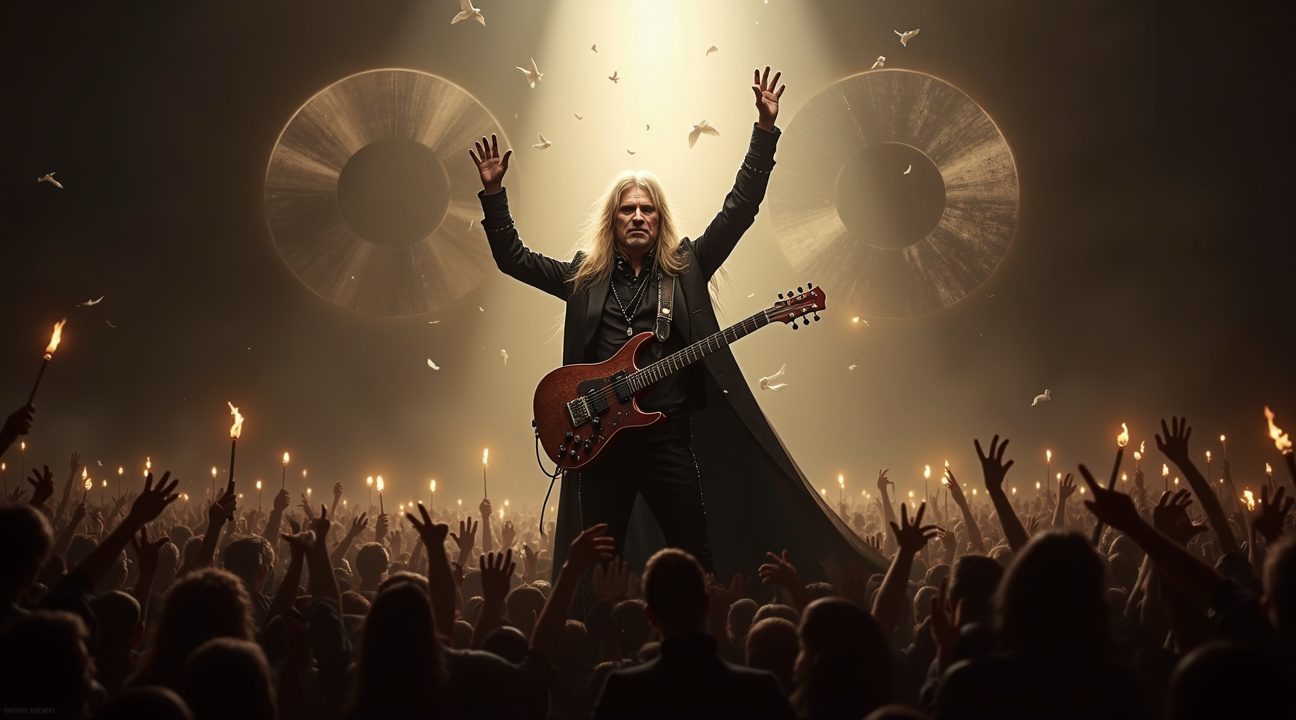
From Pop Culture Icon to Reality TV Pioneer and Festival Creator
Ozzy Osbourne’s transition from heavy metal legend to mainstream pop culture icon reached new heights when MTV’s The Osbournes premiered in 2002. The reality show offered viewers an unfiltered glimpse into the chaotic household of the Prince of Darkness, complete with family squabbles, pet mishaps, and Ozzy’s legendary confusion with modern technology. Within two months of its debut, the show became the third highest-rated cable television program, proving that audiences craved authentic, unscripted entertainment over polished productions.
This groundbreaking series transformed Ozzy from a niche metal figure into a household name that transcended musical boundaries. Suddenly, grandmothers who’d never heard of Black Sabbath were laughing at Ozzy’s attempts to operate the television remote. The show’s success demonstrated how reality television could humanize even the most intimidating rock stars, making them relatable to mainstream America.
Ozzfest’s Impact on Heavy Metal Culture
Long before reality TV fame, Ozzy had already begun reshaping the metal landscape through Ozzfest, which he launched in 1996. This annual heavy metal festival became the premier platform for both established acts and emerging bands to reach massive audiences. The festival’s rotating lineup strategy meant that newer acts could share stages with metal legends, creating career-defining moments for countless musicians.
Ozzfest’s influence extended far beyond simple entertainment. The festival served as a launching pad for bands that would later dominate the metal scene, while simultaneously reviving the careers of veteran acts who’d lost mainstream momentum. This dual approach helped bridge generational gaps within the metal community, ensuring the genre’s continued evolution and relevance.
Literary Success and Critical Recognition
Ozzy’s storytelling abilities found new expression through his autobiography I Am Ozzy, which debuted at number two on The New York Times best-seller list for hardcover nonfiction. The book’s commercial success surprised many industry observers who questioned whether a rock star’s memoir could compete with traditional literary works. His honest recounting of decades filled with excess, triumph, and personal struggles resonated with readers far beyond his musical fanbase.
The autobiography’s impact earned Ozzy a Literary Achievement award at the Guys Choice Awards, acknowledging his unexpected prowess as an author. This recognition highlighted how his influence had expanded into completely different creative territories, proving that authentic voice and compelling narrative could transcend any single medium.
Even recent critical assessments continue to acknowledge Ozzy’s lasting impact on popular music. Rolling Stone’s 2023 ranking placed him at number 112 on their “200 Greatest Singers of All Time” list, cementing his position among music’s most influential vocalists. This placement reflects not just his technical abilities, but his role in shaping multiple generations of performers and fans.
Ozzy’s evolution from metal pioneer to multimedia mogul demonstrates how artists can successfully reinvent themselves while maintaining their core identity. His willingness to embrace new platforms and formats has kept him relevant across multiple decades, inspiring other musicians to explore opportunities beyond traditional album cycles and concert tours. Recent discussions about Ozzy Osbourne’s plans for future projects continue to generate excitement among fans who’ve followed his remarkable journey from Birmingham’s working-class neighborhoods to global superstardom.
The Prince of Darkness has proven that authenticity, combined with strategic risk-taking, can create a legacy that extends far beyond any single artistic achievement. His impact on pop culture continues to influence how musicians approach their careers, encouraging them to embrace vulnerability and humor alongside their artistic pursuits.
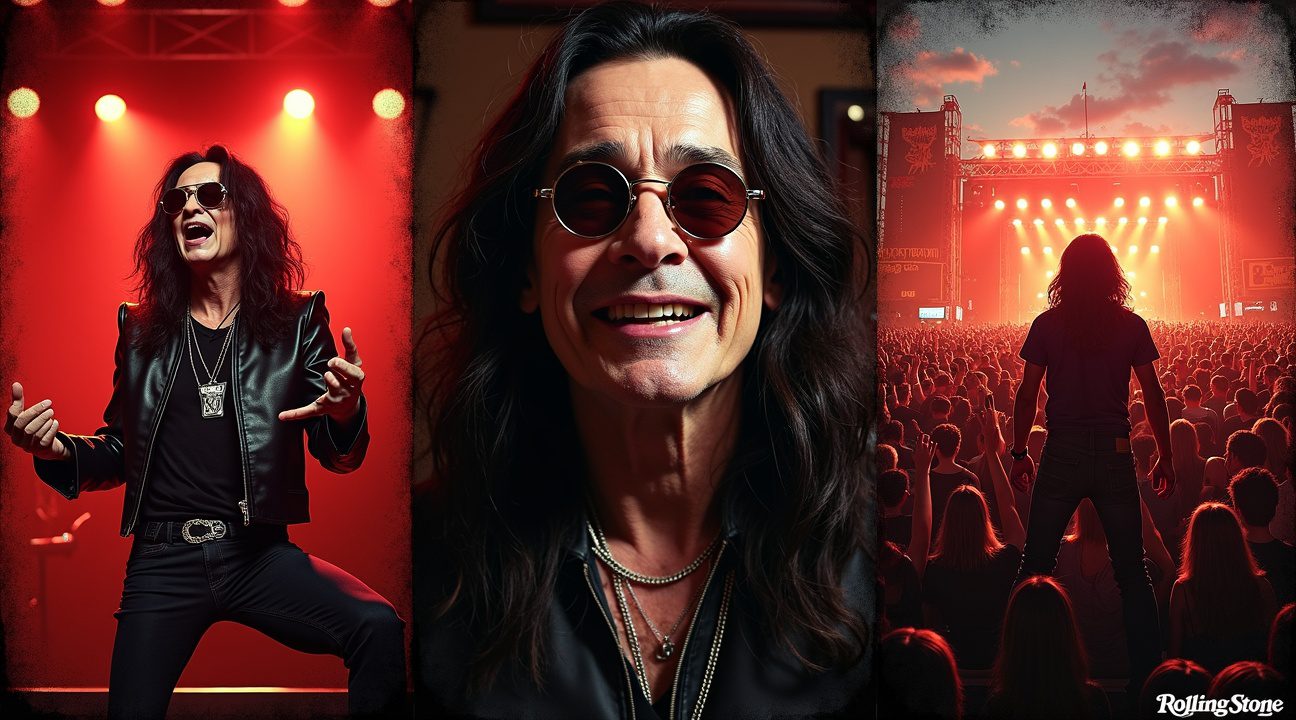
Historic Awards Including Double Rock & Roll Hall of Fame Induction
Ozzy Osbourne stands as one of the few artists to achieve the extraordinary honor of double induction into the Rock & Roll Hall of Fame. His first induction came in 2006 alongside his Black Sabbath bandmates, recognizing their collective contribution to heavy metal’s birth. Nearly two decades later, the institution honored his solo career with a 2024 induction, cementing his status as both a pioneering band member and an iconic individual performer.
Grammy Recognition Across Five Decades
Throughout his career, Ozzy has claimed three Grammy Awards that showcase his enduring relevance across generations. His 1994 win for Best Metal Performance with “I Don’t Want to Change the World” marked a solo career milestone. Black Sabbath earned him additional Grammy recognition with “Iron Man” in 1999, followed by another win for “God Is Dead?” in 2013, proving that both his legacy acts and new material continue to resonate with critics and fans alike.
Prestigious Industry Honors and Cultural Recognition
Beyond Grammy success, Ozzy’s trophy case reflects diverse industry recognition.
- The Ivor Novello Award for Lifetime Achievement celebrates his songwriting contributions.
- 2004 NME Awards honored him with the “Godlike Genius” designation.
- Classic Rock magazine dubbed him a “Living Legend.”
- Guinness World Record further validates his unique position in music history.
His hometown of Birmingham has repeatedly celebrated his achievements through various honors:
- He became the inaugural inductee into the Birmingham Walk of Fame, establishing him as the city’s most celebrated musical export.
- In 2016, Birmingham authorities named a tram after him, creating a permanent tribute that connects his legacy to daily life in the city.
These hometown honors demonstrate how his influence extends beyond music into cultural identity and civic pride.
I’ve observed how these accolades represent more than individual achievements—they reflect decades of consistent innovation and cultural impact. His double Rock & Roll Hall of Fame status particularly stands out because it acknowledges both his foundational role in heavy metal’s creation and his success in reinventing himself as a solo performer. This dual recognition places him among music’s most versatile and enduring figures.
The timeline of these awards also tells a compelling story of sustained excellence. From his early Grammy wins in the 1990s through his most recent Rock & Roll Hall of Fame induction, Ozzy has maintained relevance across multiple decades. This consistency speaks to his ability to evolve while staying true to his core identity as metal’s most recognizable voice.
What makes these honors particularly meaningful is their variety. Industry peers have recognized his songwriting through the Ivor Novello Award, critics have celebrated his genius through NME, and his hometown has claimed him as their own through multiple civic honors. Ozzy’s continued ambitions for future projects suggest that this impressive collection of awards may not represent the end of his recognition but rather another chapter in an ongoing legacy.
Each award represents a different facet of his contribution to music and culture:
- The Grammy Awards recognize artistic excellence.
- The Rock & Roll Hall of Fame celebrates historical significance.
- Lifetime achievement and civic honors acknowledge his broader cultural impact.
Together, they create a comprehensive portrait of an artist who has influenced multiple generations while maintaining his distinctive voice and vision.
These accolades also highlight his unique position as both a band member and solo artist. Few performers have achieved such recognition in both contexts, making his career trajectory a template for artistic longevity and reinvention. His dual Hall of Fame status particularly emphasizes how he helped create a genre with Black Sabbath and then continued to define it throughout his solo career.
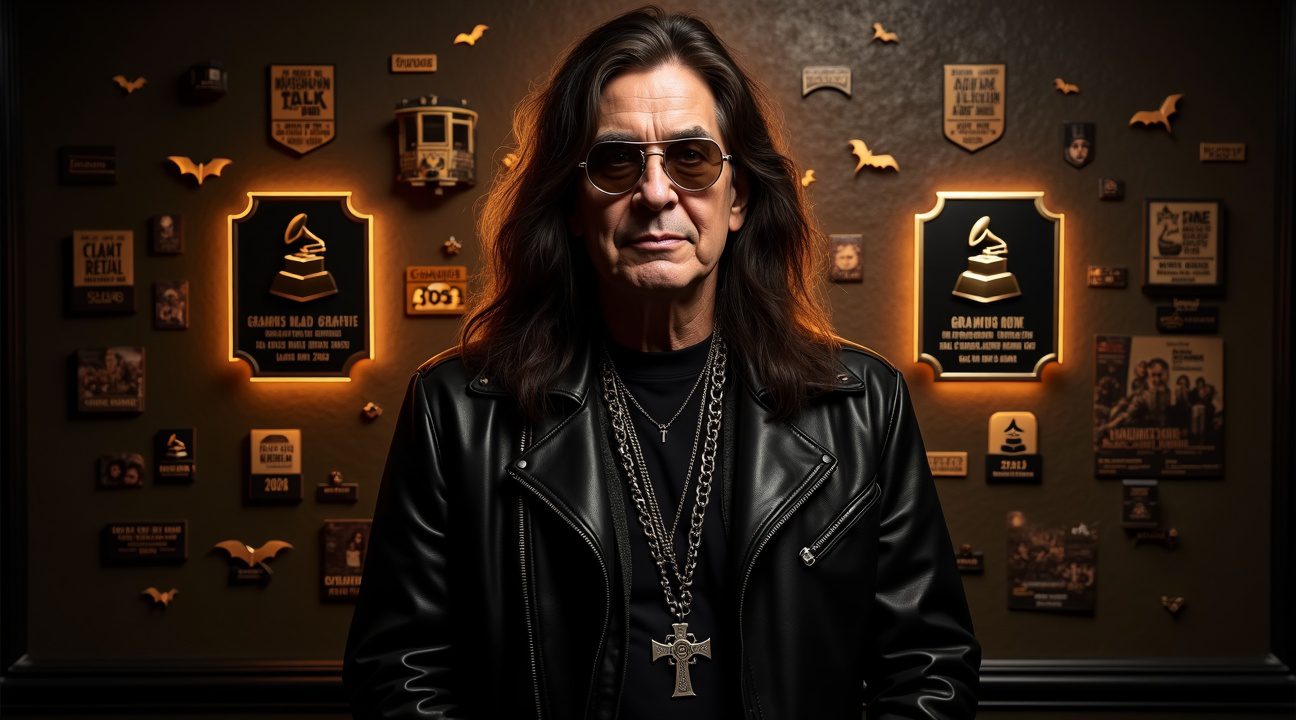
Overcoming Addiction and Parkinson’s Disease with Unbreakable Resilience
Osbourne’s struggles with substance abuse became legendary in their own right, often overshadowing his musical achievements during the late 1970s. His excessive drinking and drug use reached such heights that Black Sabbath felt compelled to dismiss him in 1979, effectively ending what many considered the definitive era of heavy metal’s founding fathers. Rather than marking the end of his career, this low point became the catalyst for an extraordinary comeback that would define his legacy.
The dismissal from Black Sabbath forced Osbourne to confront his demons while simultaneously launching one of metal’s most successful solo careers. His debut album “Blizzard of Ozz” proved that his creative powers hadn’t diminished despite his personal turmoil. Throughout the 1980s and beyond, he continued to battle addiction while producing chart-topping albums and delivering electrifying performances that cemented his status as the Prince of Darkness.
Facing Parkinson’s Disease Head-On
Decades later, Osbourne faced an even greater challenge when doctors diagnosed him with Parkinson’s disease. This neurodegenerative condition, combined with various other health issues including spinal problems, would have ended most careers. Instead of retreating from the spotlight, he demonstrated the same defiance that characterized his music throughout his life.
His health challenges forced him to reschedule multiple tours and eventually cancel some entirely, disappointing fans worldwide who’d hoped to witness the legend perform one final time. Each setback seemed to strengthen his resolve rather than diminish it. Following successful spinal surgery in 2023, Osbourne surprised the music world by announcing his intention to continue recording and performing.
The Unstoppable Force
Even in his seventies, battling Parkinson’s disease and recovering from major surgery, Osbourne refuses to accept defeat. His recent statements about wanting to create music and perform demonstrate that his passion for his craft transcends physical limitations. This determination has inspired countless fans who face their own health battles and personal struggles.
The combination of overcoming addiction and facing Parkinson’s disease with unwavering determination has added another layer to Osbourne’s already impressive legacy. He’s shown that resilience isn’t just about bouncing back from failure—it’s about continuing to pursue your passion despite seemingly insurmountable obstacles. His journey from substance-addled former Black Sabbath member to a performer who won’t let Parkinson’s disease define his final chapter represents one of rock music’s most inspiring stories of human perseverance.
Recent hints about one more album and tour suggest that his fighting spirit remains as strong as ever, proving that true legends never really retire—they just keep finding new ways to amaze their audiences.
The Power Partnership with Sharon and the Osbourne Family Dynasty
Behind every legendary rock star lies a strategic partnership that transforms chaos into success. When Ozzy Osbourne married Sharon Arden in 1982, he gained more than a wife—he secured a business partner who would reshape his entire career trajectory. Sharon’s influence extended far beyond personal support, evolving into a comprehensive management approach that elevated Ozzy from a talented but troubled musician into a global entertainment brand.
Sharon Osbourne’s management expertise proved instrumental in stabilizing Ozzy’s chaotic lifestyle while maximizing his commercial potential. Her most significant contribution came through the creation of Ozzfest, a touring festival that became synonymous with heavy metal culture throughout the 1990s and 2000s. This annual event not only provided Ozzy with a consistent platform for performance but also established him as a curator of metal talent, introducing emerging bands to massive audiences across North America and internationally.
The couple’s three children—Aimee, Kelly, and Jack—inherited their parents’ flair for public attention, though each carved distinct paths to fame. While Aimee maintained relative privacy, Kelly Osbourne and Jack Osbourne embraced the spotlight, becoming celebrities in their own right through various entertainment ventures.
The Osbournes Reality TV Revolution
The family’s decision to open their Beverly Hills home to MTV cameras created television history through The Osbournes reality series. This groundbreaking show, which aired from 2002 to 2005, offered unprecedented access to the daily life of rock royalty, revealing Ozzy as a bumbling but loveable family patriarch rather than the demonic figure his stage persona suggested. The series demonstrated how authentic family dynamics could captivate audiences more effectively than scripted drama.
Kelly emerged as a fashion icon and television personality, while Jack developed his own entertainment career focusing on adventure programming and paranormal investigations. Their success illustrated how the Osbourne brand extended beyond music into broader entertainment realms, creating multiple revenue streams and maintaining family relevance across different demographic groups.
Sharon’s unwavering support became particularly evident during Ozzy’s most challenging periods, including his struggles with addiction, legal issues, and health problems. Her strategic guidance helped him navigate these setbacks while maintaining his professional commitments and public image. This partnership model became a template for other celebrity couples seeking to combine personal relationships with business success.
The family’s evolution continued with newer television projects that capitalized on their established chemistry while exploring different formats. Their paranormal investigation shows allowed them to remain connected to audiences while adapting to changing entertainment preferences. These projects demonstrated the Osbourne family’s ability to reinvent themselves while staying true to their core appeal.
Beyond television success, Sharon’s influence on Ozzy’s musical career remained constant through strategic album releases, tour planning, and brand partnerships. Her business acumen helped him secure lucrative deals while maintaining artistic credibility, a balance that many aging rock stars struggle to achieve. This management approach ensured that Ozzy’s recent album and tour plans continue generating excitement among both longtime fans and new audiences.
The Osbourne family dynasty represents more than celebrity success—it illustrates how strategic partnerships can transform individual talent into lasting entertainment empires. Sharon’s role as manager, wife, and family matriarch created a support system that sustained Ozzy through decades of personal and professional challenges while building opportunities for their children to establish independent careers.
Their collaborative approach influenced how other rock families approached business relationships, demonstrating that mixing personal and professional commitments could enhance rather than compromise both areas. The Osbourne model showed that authentic family connections, when properly leveraged, could create entertainment content that resonates across multiple generations and maintains relevance through changing cultural trends.
This partnership continues shaping Ozzy’s legacy, ensuring that his contributions to music and popular culture remain accessible to contemporary audiences while honoring his historical significance within the heavy metal community.
Sources:
Wikipedia, “Ozzy Osbourne”
Clios/the Muse, “Lifetime Achievement Award Recipient: Ozzy Osbourne”
EBSCO Research Starters, “Ozzy Osbourne” by Tyler Biscontini (2024)
OPB, “Ozzy Osbourne, who led Black Sabbath and became the godfather of heavy metal, dies at 76 just weeks after farewell show”
Britannica, “Ozzy Osbourne | Death, Children, Songs, Last Show”
Times Union, “Ozzy Osbourne, who led Black Sabbath and became the godfather of heavy metal, dies at 76 just weeks after farewell show”
Top 40 Weekly, “Ozzy Osbourne – Biography, Songs, Albums, Discography & Facts”

